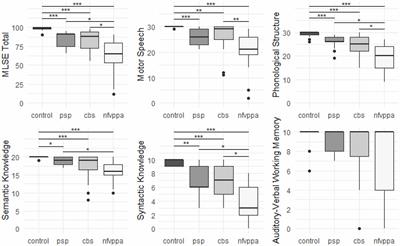EDITORIAL
Published on 16 Feb 2022
Editorial: The Unusual Suspects: Linguistic Deficits in Non-Language-Dominant Neurodegenerative Diseases
doi 10.3389/fnagi.2022.861041
- 1,653 views
- 1 citation
8,762
Total downloads
41k
Total views and downloads
Select the journal/section where you want your idea to be submitted:
EDITORIAL
Published on 16 Feb 2022
ORIGINAL RESEARCH
Published on 12 Jan 2022

MINI REVIEW
Published on 25 Nov 2021
ORIGINAL RESEARCH
Published on 04 Oct 2021

ORIGINAL RESEARCH
Published on 07 Sep 2021

BRIEF RESEARCH REPORT
Published on 31 Aug 2021

BRIEF RESEARCH REPORT
Published on 30 Jul 2021

ORIGINAL RESEARCH
Published on 19 Jul 2021

ORIGINAL RESEARCH
Published on 06 May 2021

CASE REPORT
Published on 04 May 2021

ORIGINAL RESEARCH
Published on 23 Nov 2020

